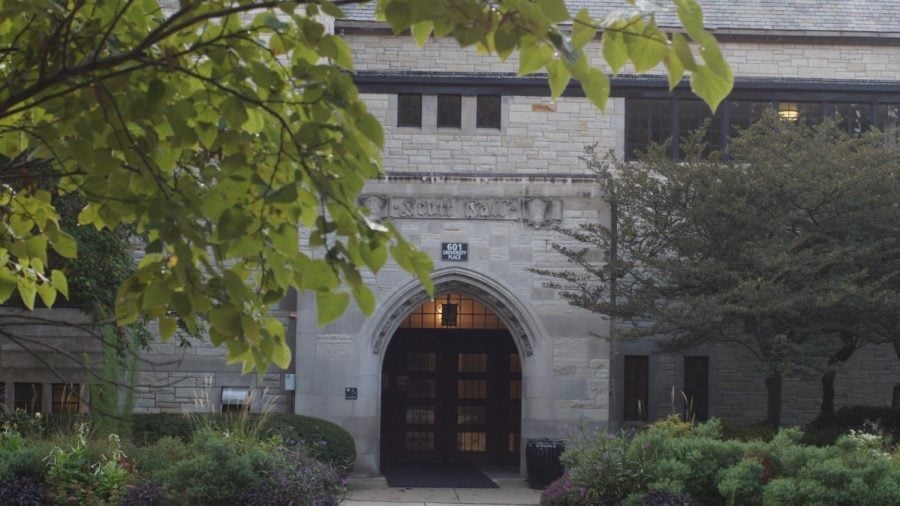Faculty Senate discusses next steps to reimagine CTECs, improve student mental health
Daily file photo by Victoria Benefield
Scott Hall. Faculty members discussed CTEC reform and student mental health at Wednesday evening’s meeting.
May 11, 2023
As part of a process to eliminate bias in CTECs — Northwestern’s course and teacher evaluation program — the University will pilot a new survey system that centers students’ experiences within courses over instructor evaluation, McCormick Prof. Jill Wilson announced during Wednesday’s Faculty Senate meeting.
“The working group has developed a new instrument which is not a revision of the existing survey, but rather something entirely new, with special attention to the ways in which bias creeps into those responses,” Wilson said. “It’s moving from an evaluation of teaching and learning to feedback on student experience.”
This new survey will launch Fall Quarter 2023. Students will fill out responses for both CTECs and the new pilot system, and then the Committee to Reimagine CTECs will analyze the new survey’s effects.
The committee has been working to reform CTECs since April 2018, when the Faculty Senate issued a proposal to standardize the evaluation tool throughout all departments. The proposal also called on the University to research best practices about the questionnaire and consider implicit bias in instructor evaluations. In March 2019, ASG also passed a CTEC reform resolution that proposed adding questions about each class’ grade distributions.
Current CTECs ask students to summarize their reaction to the course in addition to other open-ended responses that vary by department. However, the new survey will invite students to answer five questions. The system will employ questions on a Likert scale, a numerical scale that is measured on five or seven points. Furthermore, the survey will feature one open response question asking students which course elements supported their learning. It will not ask overarching questions about the course or instructor, Wilson said.
Wilson added the committee is conducting focus groups for students and faculty to provide feedback on the new survey.
English Prof. Barbara Newman, a member of the Committee to Reimagine CTECs, said she has reservations about the new survey.
“It seems to me it’s way too short,” Newman said. “It gives a lot less useful information than the current CTECs.”
Mathematics Prof. Ezra Getzler said the reform does not address a problem he has with the current CTECs, which is that they do not give students sufficient time to reflect on what they’ve learned in a course.
On Wednesday, the Faculty Senate also heard from Vice President for Student Affairs Susan Davis, who assumed her position six weeks ago. Davis said a main priority at NU is to comprehensively improve the health and mental wellness of students.
Creating a healthier environment will require both structural change on behalf of the University, as well as behavioral change from students, Davis said. Some structural adjustments to improve the mental wellness of students, she said, could include reforming some club application processes to be less competitive, especially for freshmen.
Davis also mentioned reforming the second-year housing process. While some students in Greek life have the opportunity to choose the group of people who live with and around them, unaffiliated students have a more difficult time, she said.
She said she hopes students will feel more comfortable relaxing and partaking in events that aren’t strictly academic.
“Some of our students are not allowing themselves to have just some wellness,” Davis said. “It’s about being comfortable with unstructured time and giving yourself opportunities to sort of engage.”
Davis added she has hosted focus groups with both undergraduate and graduate students in recent weeks to learn about what they want to see improved at the University. Several groups discussed their experiences with social scenes, including undergraduate Greek life and graduate student lab culture.
Davis said she’s looking forward to forming more connections within the University.
“(NU is) a place that cares deeply and wants to have a student community,” she said.
Email: [email protected]
Twitter: @winiarskyT
Related Stories:
— ASG passes course evaluation reform resolution to include additional questions, grade distributions
— Faculty, students express concerns about CTECs and propose reforms


